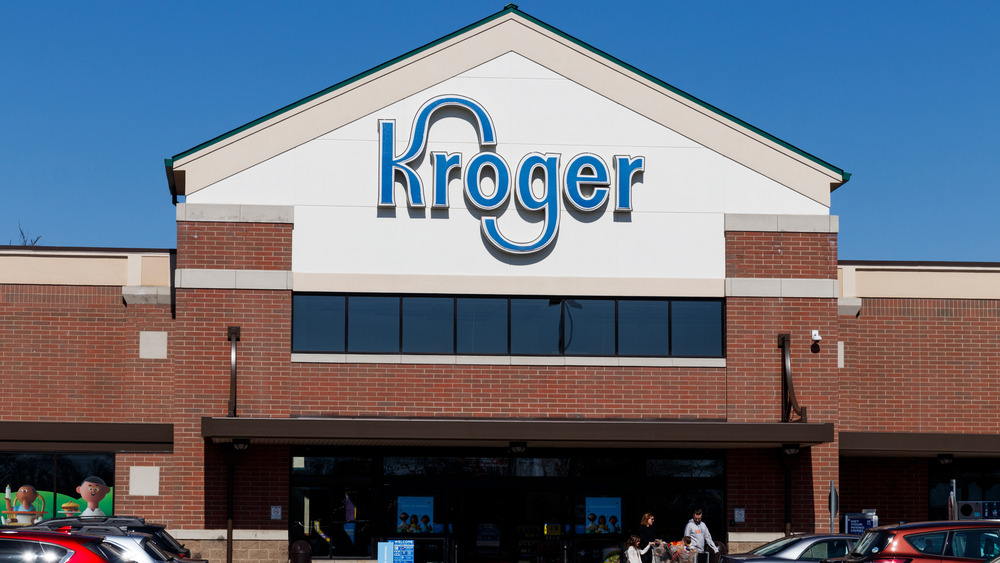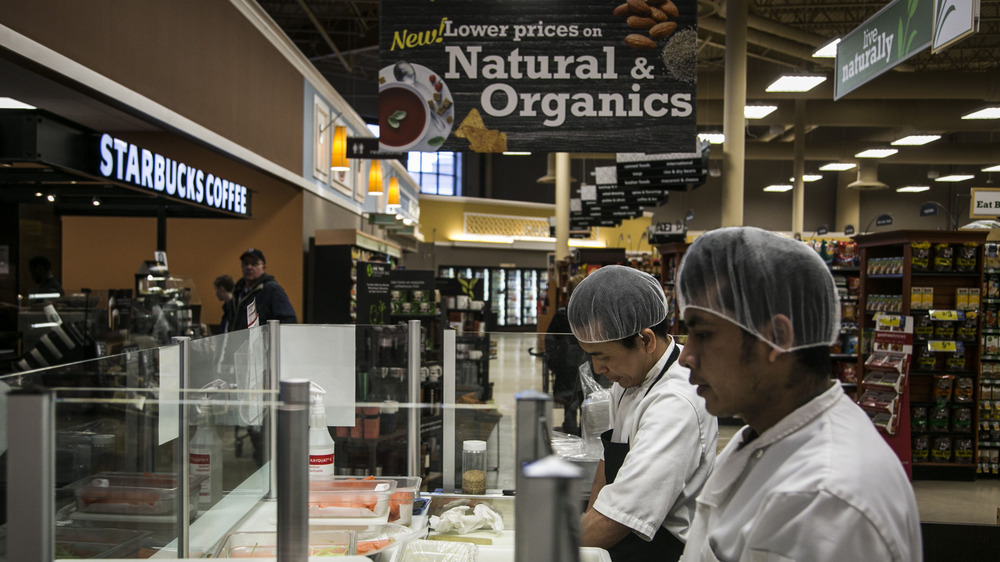The Reason LA Councilmen Want To Investigate These Kroger Closures
On Wednesday, Los Angeles councilmembers Marqueece Harris-Dawson and Paul Koretz introduced a motion to investigate the reasons for Kroger's closure of two of their stores. NBC Los Angeles quotes from the motion: "The city has an interest in considering whether it should take legislative action to address these closures and potentially future closures of other grocery stores especially in areas of the city that are commonly known as Food Deserts."
This follows Kroger's decision to close three of their stores located in lower-income communities after the city government mandated a pay raise for grocery workers of $5 per hour. "It's never our desire to close a store, but when you factor in the increased costs of operating during Covid-19, consistent financial losses at these three locations, and an extra pay mandate that will cost nearly $20 million over the next 120 days, it becomes impossible to operate these three stores," a Kroger spokesperson told CNN in early March.
Kroger's store closures in Los Angeles follow a larger pattern of ceasing business once local governments demand that they pay their frontline workers more. In the beginning of February, the Los Angeles Times reported that following a mandated pay bump of $4 per hour in Long Beach, California, Kroger closed two of their stores, stating that they could not afford to operate under such a budget and blaming the government for overstepping its boundaries. This ignores The Cincinnati Enquirer's report that Kroger's sales increased by 8.4 percent during the pandemic.
Real action may come from the unions
"Supermarkets, as we all know, have made high profits, and yet some are threatening to close. It's clearly out of spite or out of an attempt to leverage us," Spectrum News 1 quotes Councilmember Paul Koretz as saying before voting for the motion. The points of the motion are that the City Council would be able to compel witnesses for an examination of why Kroger closed their stores, request with the threat of a subpoena the presence of store executives, and use the outcome of the hearing to inform future grocery legislature and strategies for combating food deserts.
A larger threat, however, has been made by Marc Perrone, the international president of the United Food and Commercial Workers International Union. Quoted by Winsight Grocery Business, Perrone lambasted Kroger's decision to treat a pay bump as an opportunity to threaten their workers and communities and declared the intention to "use every tool available to ensure that Kroger follows the law and that our state and federal leaders hold companies accountable for flagrantly choosing to evade these vital workplace laws." A concerted action by the UFCW may hurt Kroger more than the findings of the motion.
With both a major union and city governments angered by its tactics, Kroger appears to have a battle brewing before it.

